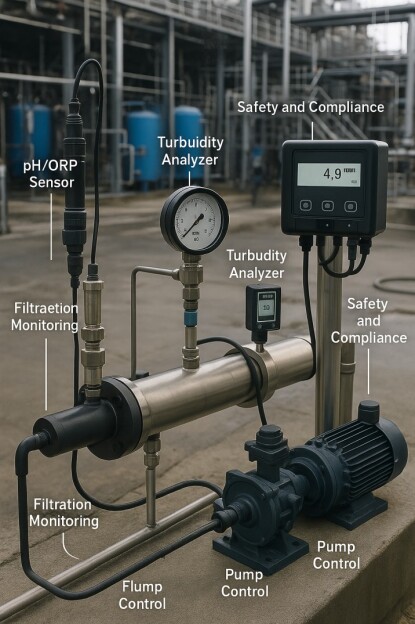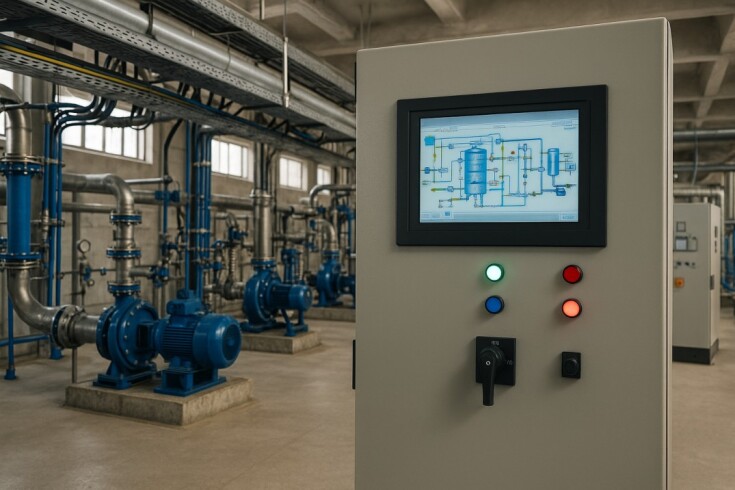Why Instrumentation Matters in Water Treatment Plants
Instrumentation plays a vital role in the operation, safety, and efficiency of modern water treatment plants. Whether in municipal facilities or industrial treatment systems, accurate and reliable measurement devices are essential for maintaining water quality, optimizing performance, and ensuring compliance with environmental regulations.
🔹 1. The Role of Instrumentation in Water Treatment

Water treatment processes depend on real-time data to function effectively. Instruments monitor critical parameters such as:
Flow rate
Pressure
pH and ORP (oxidation-reduction potential)
Turbidity
Conductivity
Dissolved oxygen (DO)
Chlorine and other disinfectant levels
Without accurate measurements of these parameters, plant operators cannot make informed decisions or detect system failures in time.
🔹 2. Ensuring Process Stability and Efficiency
Instrumentation allows for continuous monitoring and automated control of key systems, such as:
Chemical dosing: pH and ORP sensors ensure correct chemical levels for coagulation, disinfection, and pH adjustment.
Filtration monitoring: Pressure differential sensors indicate when filters are clogged and need backwashing.
Pump control: Flow and pressure sensors help prevent cavitation, dry running, or overload conditions.
Membrane protection: TDS, pressure, and flow readings are crucial for the proper operation of reverse osmosis and ultrafiltration systems.
The result is stable, efficient, and cost-effective operation with minimal waste and energy use.
🔹 3. Safety and Compliance
Water treatment plants must comply with strict health, safety, and environmental standards. Instrumentation helps:
Maintain regulatory compliance by logging parameters like chlorine residual or effluent turbidity.
Detect anomalies early — such as a spike in ammonia or drop in dissolved oxygen — before they pose safety or environmental risks.
Automate alarms and shutoffs to protect personnel and equipment in case of abnormal conditions.
In many countries, online analyzers and data logging are mandatory for reporting and auditing purposes. The absence of proper instruments can lead to legal penalties and public health risks.
🔹 4. Integration and Automation
Modern treatment plants rely on SCADA (Supervisory Control and Data Acquisition) systems. Instrumentation is the backbone of this automation, feeding real-time data into control systems for:
Centralized monitoring
Remote operation
Historical trend analysis
Optimization of chemical and energy usage
This integration leads to smarter plants, able to self-adjust and operate efficiently with minimal manual intervention.

Conclusion
Instrumentation is not just a technical add-on — it's a core component of any modern water treatment facility. From ensuring water safety and quality to boosting efficiency and lowering costs, proper instrumentation makes all the difference. Investing in reliable sensors, analyzers, and monitoring systems is essential for long-term success in any water or wastewater treatment application.




